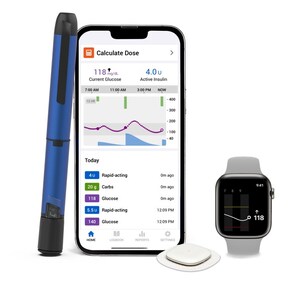DUBLIN, May 14, 2021 /PRNewswire/ -- New findings from an American College of Cardiology's (ACC) survey revealed more than half of cardiologists (57%) believe patient preparation may lead to better quality discussions around treatment options for heart valve disease (HVD). Results from the ACC CardioSurve panelist survey, sponsored by Medtronic (NYSE: MDT), and conducted by the American College of Cardiology, garnered responses from more than 150 cardiologists around key factors driving treatment choices for patients with symptomatic severe aortic stenosis. The data was published in the April 2021 Cardiology Magazine and will be presented Sunday during the virtual symposium at ACC's 70th Annual Scientific Session, A Practical Approach to Shared Decision-Making when Treating HVD.
More than five million Americans are currently impacted by heart valve disease, and 1.5 million have one of the most common forms, aortic stenosis (AS). Currently, treatment options for AS include transcatheter aortic valve replacement (TAVR), a minimally invasive procedure, or a surgical aortic valve replacement (SAVR), also known as open heart surgery. However, more than half of cardiologists surveyed (53%) feel that their symptomatic severe AS patients are not as informed as they should be about their treatment options.
The findings indicate physicians recognize the importance of shared decision making to achieve individualized care for heart valve disease patients. This reinforces new ACC/AHA Heart Valve Disease Guidelines released in December 2020, calling for shared decision-making between patients and their heart team when it comes to intervention choices – particularly the decision between TAVR and SAVR.
"In light of new guidelines, it is more important than ever to understand how to actually achieve shared decision-making goals in clinical practice," Purvi Parwani, M.D., director of the Women's Cardiovascular Health Clinic at Loma Linda International Heart Institute, and panelist in the ACC virtual symposium. "This survey gives the cardiology community clearer insights into how to enhance the conversations we are already having and align on patient priorities – with the ultimate goal of achieving a more timely, individualized approach to aortic stenosis care."
The survey drew parallels to the recent Active Living survey by patient advocacy group Heart-Valve-Surgery.com of more than 3,400 patients and caregivers, showing that both physicians and patients want to improve the doctor/patient dialogue to help create more individualized treatment plans which can lead to improved outcomes.
In fact, nearly 75% of cardiologists surveyed who regularly treat AS patients said they discuss treatment options with their patients at the time of the diagnosis (CardioSurve). Similarly, the Active Living patient survey found that doctor/patient dialogue was the highest reported factor in determining treatment decisions. More than 90% of respondents who identified as a heart valve patient said that they are influenced by conversations with their doctors (Active Living). Yet, more than one-third of patients (37.4%) wished they asked more questions at their doctor's appointment during their heart valve disease treatment journey (Active Living).
"We know patients with AS count on discussions with their cardiologists, making it even more important to fine-tune how they prepare for these critical decisions," said Adam Pick, patient advocate and founder of Heart-Valve-Surgery.com. "As an advocate for heart valve disease education, I hope these insights empower patients to find their voice and know that their physicians value the dialogue around their treatment goals and preferences."
The CardioSurve results also suggests key factors driving treatment choices and the preparation for conversations can vary between physicians and patients:
- The top three items that cardiologists believe would better prepare their patients prior to their discussion include:
- Having a family member/friend attend the visit to take notes and ask follow-up questions (59%)
- Use of a patient decision aid (53%)
- Come with a list of questions to ask during the appointment (46%)
- The most important factor to physicians when determining the best treatment option for patients is the risk of mortality (70% - CardioSurve), while nearly half of patients (49% - Active Living) cite a return to an active lifestyle as a key factor in their treatment decision.
"As a global leader in heart valve innovation, Medtronic is committed to advancing our structural heart therapies to standard of care and expanding access to patients around the world," said Nina Goodheart, president of the Structural Heart & Aortic business, which is part of the Cardiovascular Portfolio at Medtronic. "These survey results demonstrate the strong collaboration by industry, medical societies and patient advocates to improve outcomes."
ABOUT THE SURVEYS
ACC CardioSurve
This research was designed to develop a general understanding from U.S. cardiologists of their perceptions regarding the discussion between cardiologists and patients about the diagnosis and treatment of patients with Aortic Stenosis (AS). Email invites were sent to all 437 CardioSurve panelists – current, active US Fellows of the ACC from January 8 – February 4, 2021. A total of 157 panelists completed the survey.
Active Living Survey
These results are based on an online survey issued to the Heart-Valve-Surgery.com community in April 2020, the world's largest educational resource and community of heart valve patients. More than 3,400 responses were received from heart valve patients and caregivers. The respondents were a 50/50 male female split with 72% over the age of 60 and 91% over the age of 50. Of the respondents, 94% identified as heart valve patients, 53% identified as aortic stenosis patients.
Contacts: |
|
Joey Lomicky |
|
Medtronic plc |
BRG Communications |
+1-612-239-1823 |
+1-703-739-8343 |
SOURCE Medtronic plc

Related Links
WANT YOUR COMPANY'S NEWS FEATURED ON PRNEWSWIRE.COM?
Newsrooms &
Influencers
Digital Media
Outlets
Journalists
Opted In





Share this article